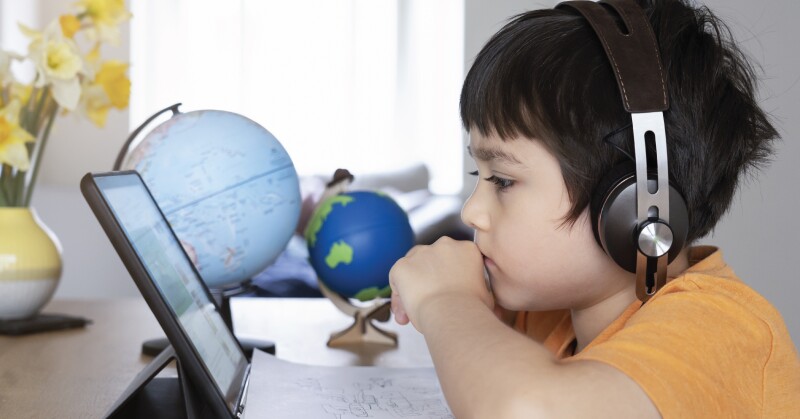The recent closing of 124,000 schools nationwide due to the coronavirus pandemic affected more than 55 million K-12 students1, throwing teachers and parents into unplanned remote learning scenarios. This was a particularly brutal blow to the parents and teachers of the 7.1 million students ages 6-21 who receive special education services2 under Individualized Education Plans (IEP) and the 700,000 students who receive accommodations under 504 Plans3 to make education accessible and equitable for them. Parents, few of whom have any formal background in education, suddenly found themselves in the role of teacher, sometimes managing e-learning curricula for multiple children and working from home themselves, often without sufficient support for their children with disabilities.
Fortunately, the education community has responded to the call for guidance on providing special education services and adaptations under less-than-normal circumstances, with more information becoming available daily. Each district must determine whether K-12 classes should continue (or return to) online or switch to a flexible, blended model.
This post connects you to support for diverse learning needs, including individuals with autism, attention-deficit/hyperactivity disorder (ADHD), learning disabilities, emotional disturbance, hearing loss, and visual impairments, among others.
Support is available.
As education has moved online, so has support for it. Assistance for teachers and parents is readily available on the internet. Be sure you are getting your information from a reliable source. Here are a few places to start:
The University of Kansas School of Education and Human Sciences recently presented a free virtual conference titled Strategies for Educational Improvement: Thriving in a New World. Sessions available for viewing include “Introduction to Re-Opening and Engaging ALL Learners” by Professors James Basham and Sean J. Smith, from KU’s Department of Special Education.
The Council for Exceptional Children is a professional association of educators dedicated to advancing the success of children with exceptionalities. They offer various resources related to online teaching, social-emotional support for students, self-care for teachers, and more.
The Educating All Learners Alliance represents an alliance of non-partisan groups deeply committed to the success of students with disabilities. The site offers a resource library as well as blog posts.
CAST is a nonprofit education research and development organization that created the Universal Design for Learning (UDL) framework, now used worldwide to make learning more inclusive. Their website offers tips on designing inclusive online courses, creating accessible materials, supporting executive functioning (working memory, self-monitoring, organization) in remote environments, and more.
Internet Special Education Resources provides a nationwide directory of special education resources for kids and their families.
Understood offers programs for families, educators, and young adults that focus on empowering people who learn and think differently and those who support them, offering customized, accessible resources and a compassionate community.
Your skills make a difference.
As recent months have shown, the field of special education continues to evolve, sometimes at dramatic speed. A professional life in it can be as varied as the people who come to it. From teaching and administrative positions to work as a transition specialist and beyond, this field—noted for its challenges and very personal rewards—is strengthened by its practitioners’ diverse talents. Whether you’re starting on your path in education or changing your established career, the strengths and skills that have brought you to this point will have a direct, lasting impact on your students and their families.
Build your career on a strong foundation.
You can thrive while helping special education students develop academic and life skills. In our online graduate certificate programs and the online master’s programs in autism spectrum disorder, high incidence disabilities, leadership in special and inclusive education or secondary special education and transition, the University of Kansas School of Education and Human Sciences will help you reach your goals for a career of nurture and enrichment.
Retrieved on July 23, 2020 from edweek.org/ew/section/multimedia/map-coronavirus-and-school-closures.html
Retrieved on July 23 2020 from edweek.org/ew/articles/2020/07/08/getting-students-with-disabilities-back-to-class.html
Retrieved on July 23, 2020 from copaa.org/page/ReOpening


